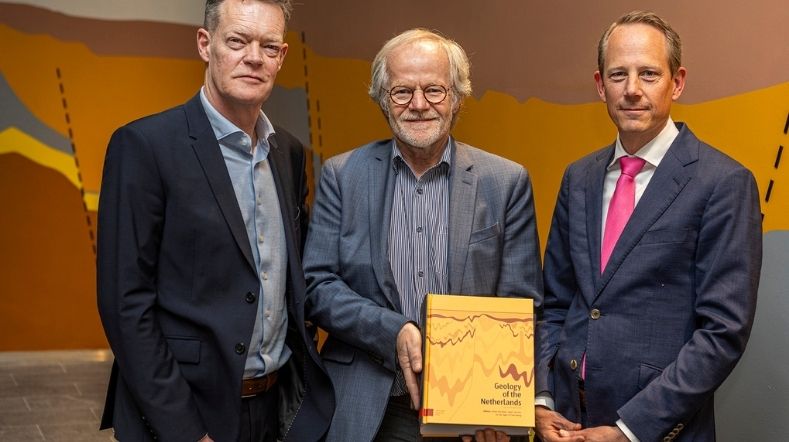Domestic gas production remains below expectations
A TNO analysis shows that realised and expected domestic gas production lags behind. Each year, TNO surveys the state of gas production for the Ministry of Economic Affairs and Climate and Climate Policy in its annual review of 'Natural Resources and Geothermal Energy in the Netherlands'.
The war in Ukraine has made clear that the Netherlands is dependent on gas imports. Last year (15 July 2022), the Dutch government therefore presented a plan for accelerating gas production in the North Sea. The plan incentivises increased gas production in the North Sea so as to ensure the security of the country's gas supply and thus compensate as much as possible for the absence of gas imports from Russia. The latest figures show that actual and expected domestic gas production remains below expectations.
Annual report: Natural Resources and Geothermal Energy in the Netherlands
Main conclusions:
- Actual gas production in 2022 was 8% below expected levels.
- Expected remaining gas production from proven fields will fall by 24 billion cubic metres.
- Over the past year, gas stocks fell from 131 to 97 billion cubic metres.
- Future annual production will be correspondingly lower.
- No significant increase in drilling for potential new gas fields.
Gas production expected and realised
Actual gas production in 2022 was 8% below expected levels. For the 'small fields' (all gas fields except the Groningen field), gas production in 2022 was 11 billion m3, whereas the gas companies had expected 12 billion m3.
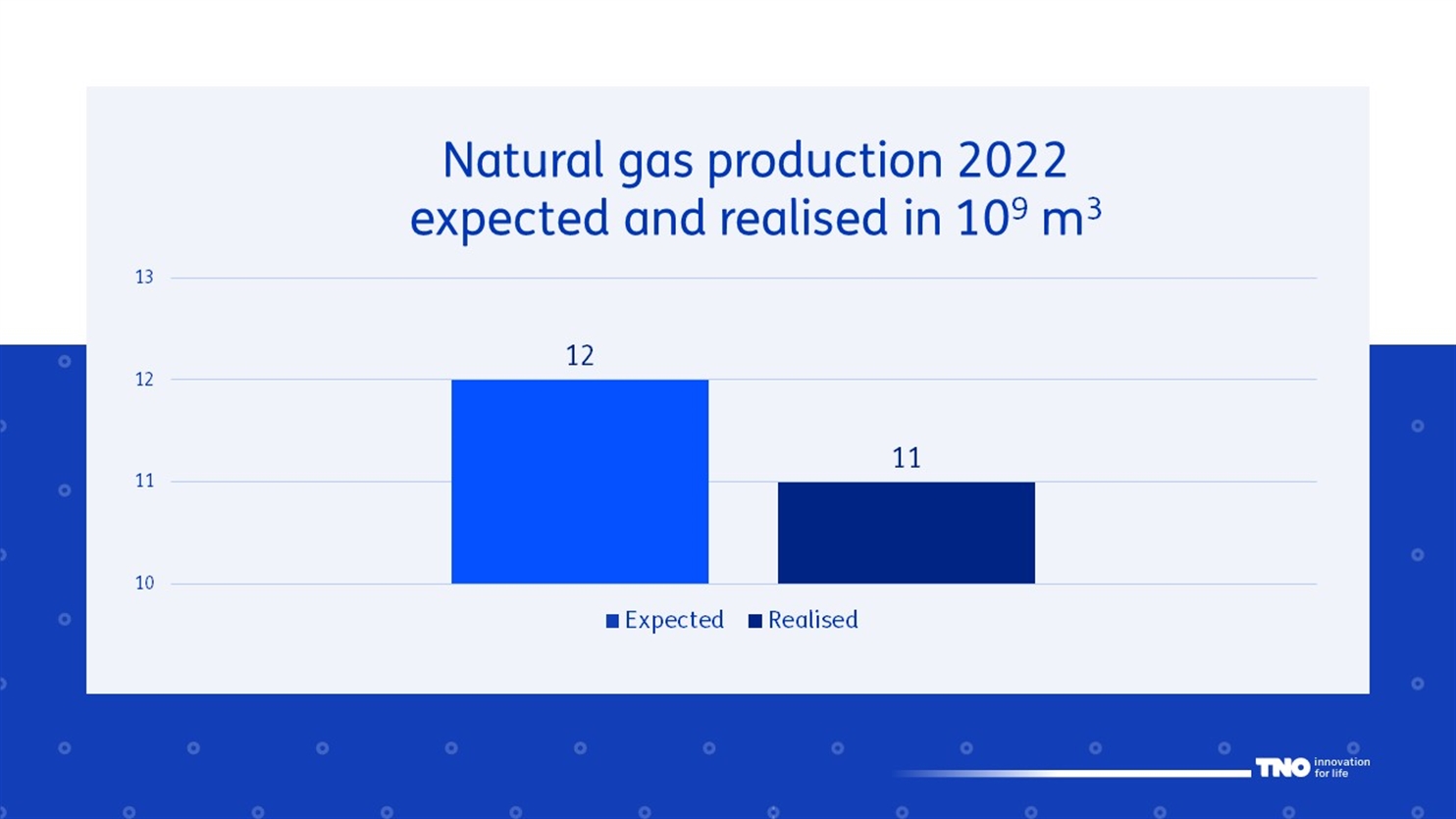
Decline in gas supplies
The gas producers have reduced expected remaining gas production from proven fields over the coming years by 24 billion m3 (in total). This downward adjustment of gas stocks, together with last year's production level, has led to a reduction of stocks from 131 to 97 billion m3 over the past year. Future annual production is therefore likely to be lower.
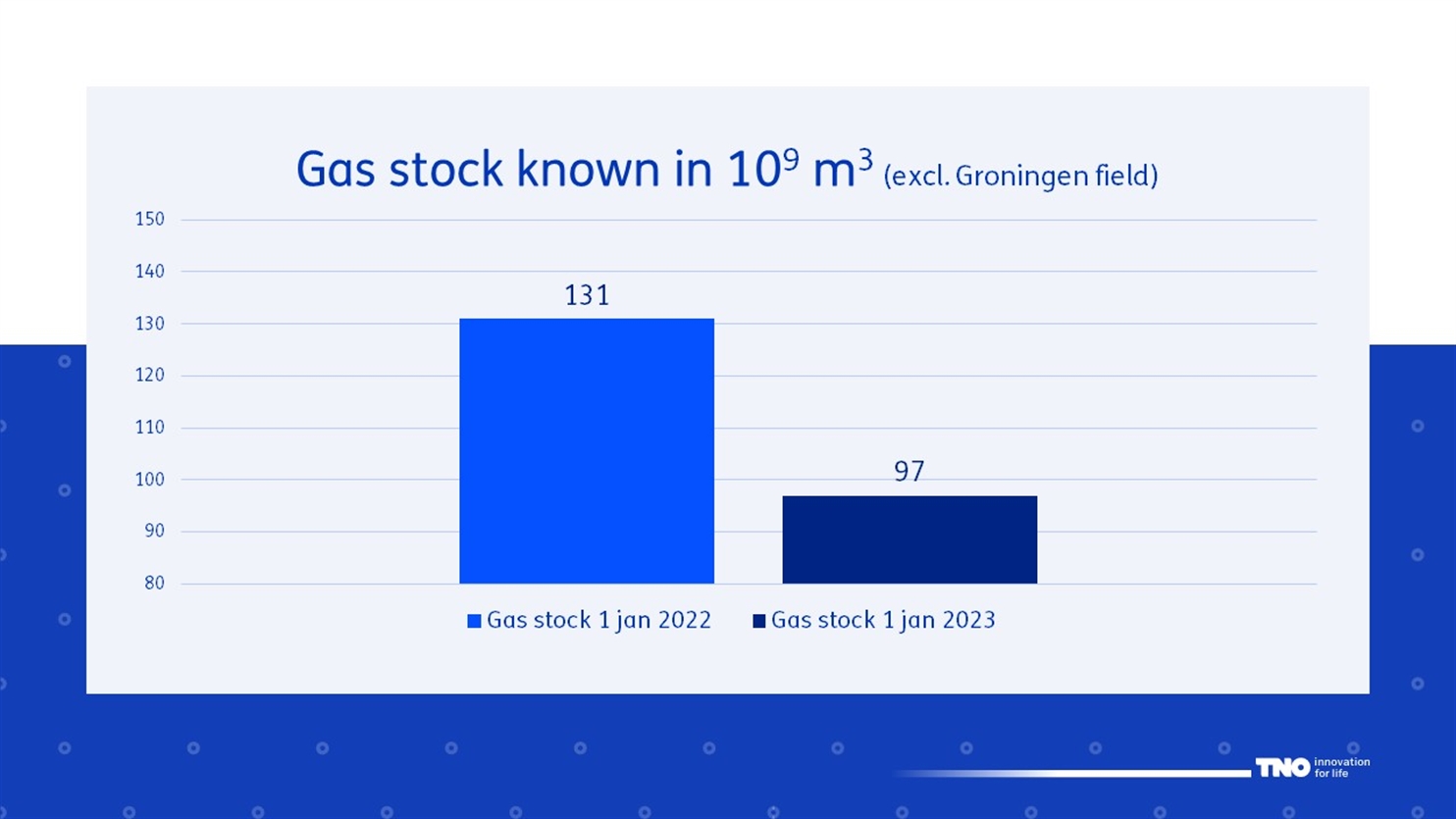
Amount of drillings required for acceleration
Implementation of the acceleration plan meant that drilling to find new gas fields was expected to increase sharply, but that has not in fact happened. To achieve the targeted acceleration, eight wells a year are needed and thus investment in new gas projects.
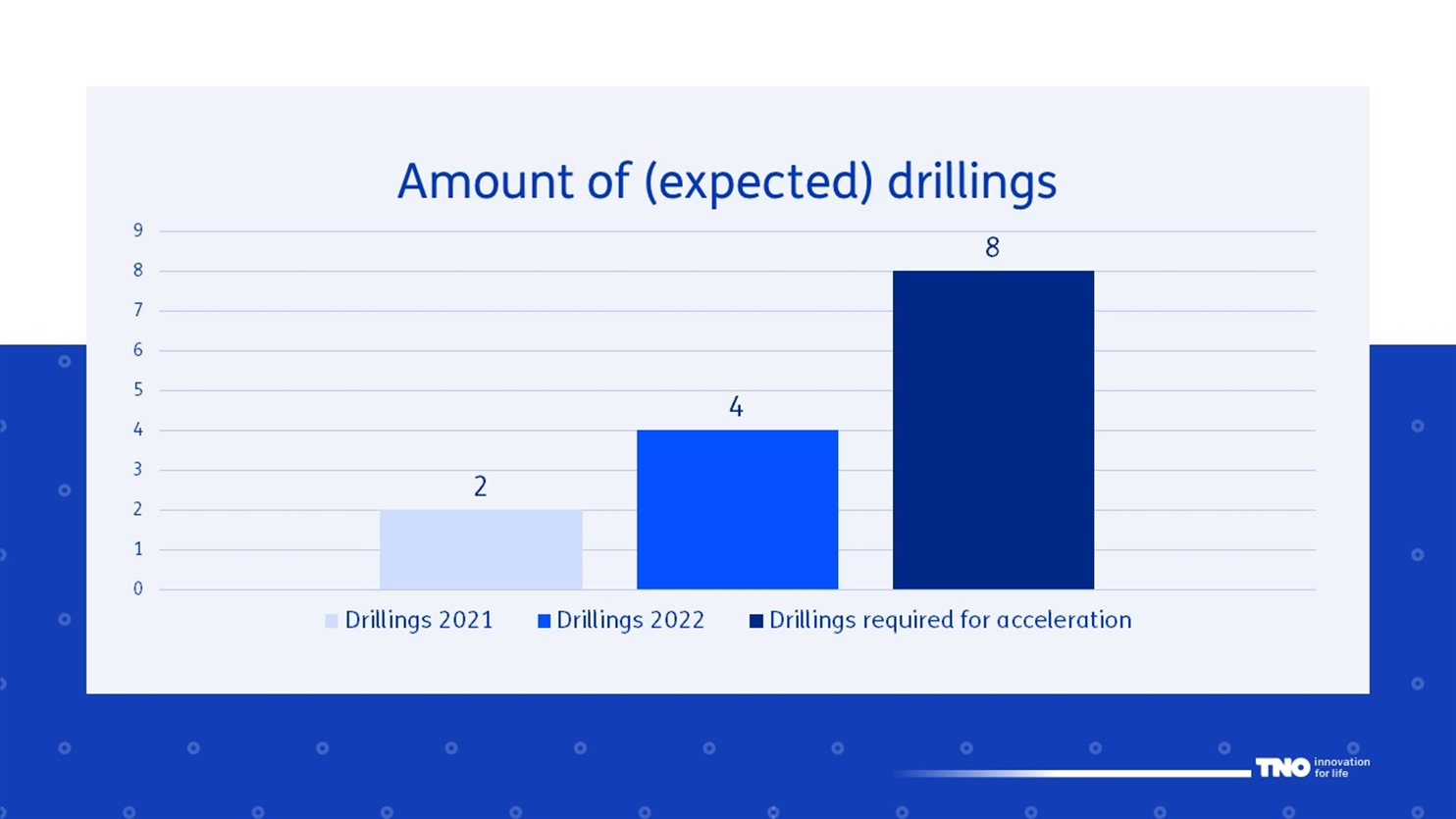
Increasing dependence
The continued decline in Dutch gas production means that dependence on imported natural gas is increasing. Until 2017, the Netherlands was a natural gas exporter, but currently it is about 70% dependent on imports. Projected gas production and demand trends presented in the Climate and Energy Outlook by the Netherlands Environmental Assessment Agency (PBL) show that despite the expected decline in gas demand, dependence on imports will rise to 80-90% over the next ten years.
Possible causes
It is too early to draw definitive conclusions regarding the effects of the acceleration plan. That will require determining whether the Netherlands has become less attractive for investment in the oil and gas industry due to:
- the additional tax burden on gas producers after the extremely high gas prices in 2022;
- the expected embargo on gas projects under the Wadden Sea;
- fewer new projects due to public opposition to onshore and offshore gas extraction;
- uncertainty about longer-term public acceptance, leading to investment in gas extraction projects involving much greater (financial) risk.
Accountability
TNO surveys the state of gas production each year in its annual review of 'Natural Resources and Geothermal Energy in the Netherlands'. This is compiled by the Advisory Group for Economic Affairs (TNO-AGE, part of the Geological Survey of the Netherlands – GDN) on the basis of data received from operators holding a permit under the Dutch Mining Act. TNO-AGE does this for and on behalf of the Ministry of Economic Affairs and Climate Policy.
The annual review reports on the activities and results of exploration and production of hydrocarbons, rock salt and geothermal energy in the Netherlands, as well as on the status and future of subsurface temporary storage (natural gas, oil, nitrogen) and permanent storage (brine and CO2).
Geological Survey of the Netherlands
The Geological Survey of the Netherlands (part of TNO) manages all data and knowledge regarding the Dutch subsurface. One of its tasks is to advise on the extraction of gas from the Dutch subsurface. It has been doing so for decades and reports on this annually (see also www.nlog.nl).
Get inspired
Further growth in geothermal energy production in 2024


New map reveals coastal resilience and vulnerability across Europe
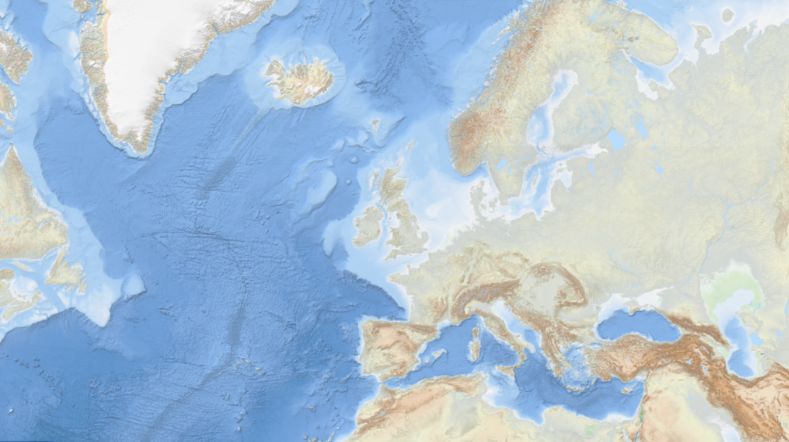

Helicopter survey will provide 3D image of salinisation and subsurface
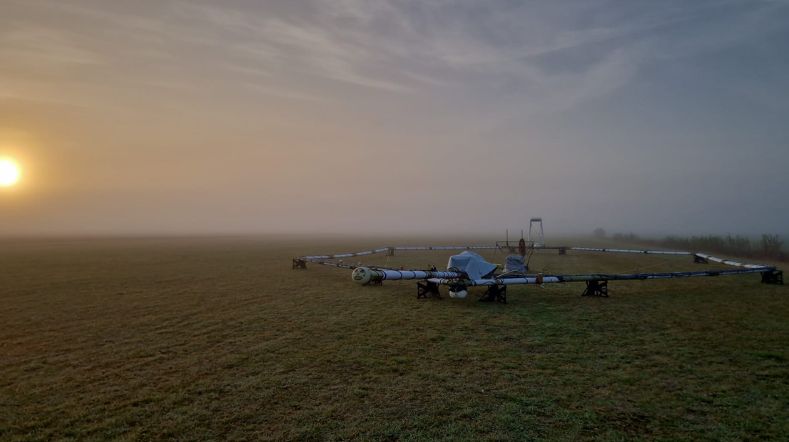

Methane emissions in the North Sea Symposium
Geology of the Netherlands: the wealth of knowledge under our feet
